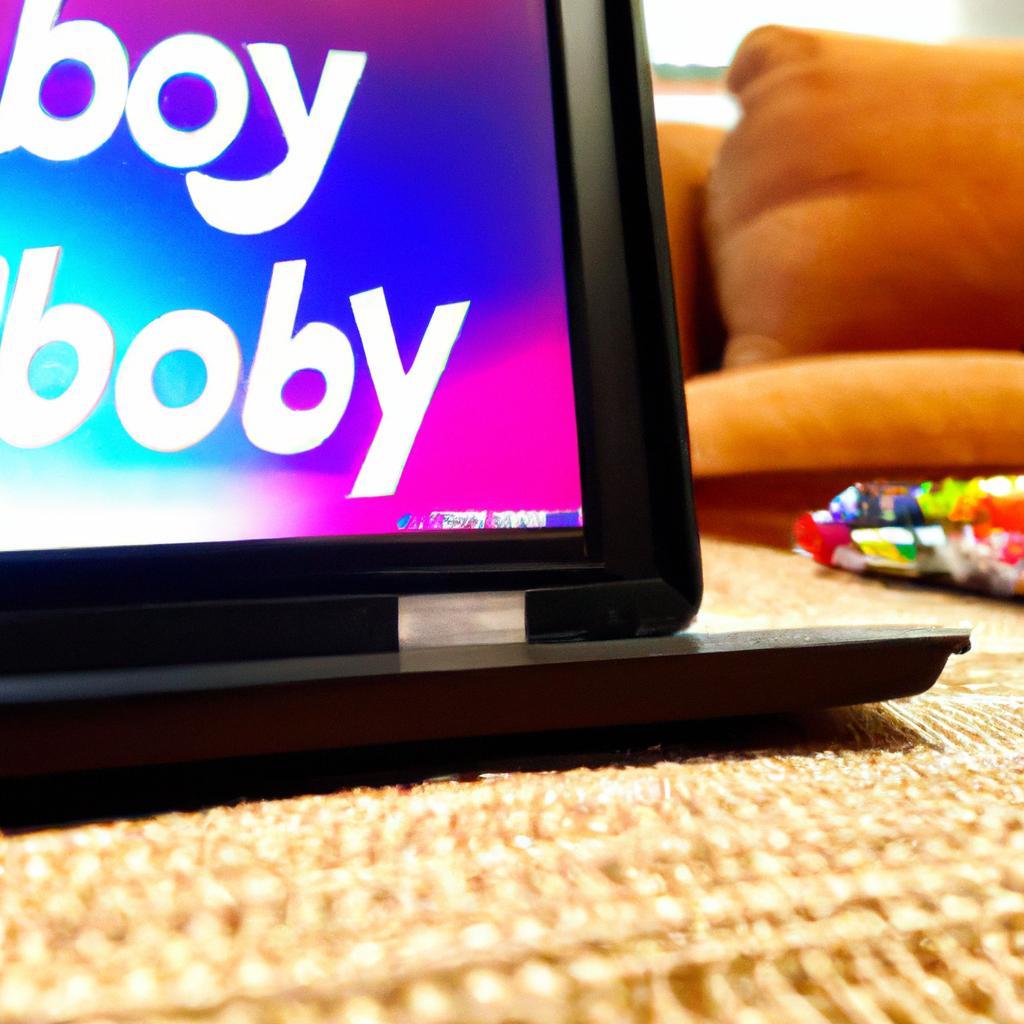Finding the Best Laptop for Work and Entertainment
The laptop market can be overwhelming when you’re trying to find the best machine for your needs. With a range of features, specs, options, and prices, you need to make sure you choose a device that offers the performance and flexibility you need for both work and entertainment purposes.
In addition to the practical factors you should consider when buying a laptop – such as processor type & speed, RAM capacity, storage size, graphics hardware, durability, and portability – it’s important to take into account personal factors such as display resolution and brightness levels, audio quality, and the size of the laptop.
To ensure you get your hands on the right laptop for your work and entertainment needs, here’s an overview of the essential features you should look out for.
Essential Features to Consider
When shopping for a laptop, there are several essential features you need to consider. The processor type and speed will determine the laptop’s ability to quickly and efficiently run programs. The RAM capacity will affect how many applications can run concurrently. The size of the storage drive will impact the amount of data you can store on the device. Graphics hardware is important for gaming, and for applications that require more powerful visuals. Durability and portability also come into play when choosing the best laptop for your work and entertainment needs.
Processors with dual-core technology can run two applications at once without slowing the system down. Having more cores will improve multitasking performance. Look for an Intel Core i3, Core i5, or Core i7 processor, as they are the most reliable for completing tasks quickly. When it comes to RAM, 4GB or 8GB will work for everyday activities such as internet browsing, web conferencing, and basic office work. For gaming and other more demanding tasks, 16GB or more is recommended.
The size of storage is also essential. SSDs (solid-state drives) are faster and have lower power usage. If you are using the laptop for work, you may need more storage space. A HDD (hard disc drive) provides more storage at a lower price. Look for 1TB or more if you plan on storing lots of large files.
Graphics cards, such as the NVIDIA GeForce series, offer more advanced visual capabilities and allow you to edit photos and videos. Most laptops have integrated graphics, which are adequate for casual gaming and internet surfing but lack the advanced features found in dedicated GPUs.
Durability and portability are also important factors. Laptops built with aluminum or magnesium components are more durable than plastic models. Look for models that come with protective cases, scratch-resistant screens, and raised keyboards to protect them from spills and shocks. Lastly, think about portability. Lighter models with smaller screen sizes are easier to carry around, while heavier laptops may not be ideal for frequent travellers.
Performance & Battery Life
When it comes to selecting the best laptop for work and entertainment, performance and battery life are two of the key features to consider. The processor, RAM, graphics hardware, and storage capacity all affect how well your laptop is able to handle different tasks.
The processor type and speed are important factors in determining how fast and powerful a laptop can be. More powerful processors, such as the Intel Core i5/i7, are better suited for gaming or running complex software. While less powerful processors, such as an Intel Pentium or Celeron, may not be able to handle the same tasks as efficiently.
RAM capacity is also a crucial consideration when selecting a laptop. This refers to the amount of data that can be held in the temporary memory. 8GB is often the minimum requirement for most users, while 16GB would be more suitable for running more intensive programs.
Graphics and storage capacity are also important in ensuring that your laptop can cope with the demands of both work and leisure activities. Graphics hardware will help your laptop to run smoothly if you’re running applications that require a lot of visual elements, such as video editing or gaming. SSD storage has much faster speeds than traditional HDD storage, which will help applications to load more quickly.
Finally, it’s important to consider the battery life of a laptop. It’s wise to look for a laptop that offers at least 6 hours of battery life, with some laptops capable of up to 12 hours. Different brands, such as Dell, HP, and Asus, are known for their reliability when it comes to battery life.
Operating Systems & Software
When choosing a laptop, it’s important to consider the operating system and pre-installed software. There are several popular options available, each with unique advantages and disadvantages.
Windows is a great choice for PCs, as it is widely used and offers plenty of compatibility. It also has features such as Cortana, allowing you to use voice commands and access information quickly. On the other hand, Windows can be vulnerable to viruses and hacking, so users need to be vigilant about security.
Mac OS is the most reliable and secure operating system, but it can be limiting when it comes to customizing and compatibility. It also requires specialized software which may be more expensive than Windows alternatives.
Chromebooks offer an alternative with a lightweight operating system that runs mostly online apps. While this makes Chromebooks easier to use and maintain, they may not have the same range of features and programs as Windows or Mac OS.
If you’re switching from an older version of Windows or Mac OS, be sure to check the laptop for compatibility. You may need to purchase additional software or upgrade your device to continue using your favorite programs.
Display & Audio Quality
When it comes to a laptop for work and entertainment purposes, you want to ensure you’re getting adequate display resolution and brightness levels, as well as great audio quality. Not only will this make sure the visuals look great, but the audio too when watching shows or movies, or playing games. That way, you can enjoy the content you love on your device.
Different laptops come in a range of sizes, from 11 inches to 17 inches, and you need to consider what size works best for you. Ideally, you will want a larger size laptop if you plan to use it mainly for work or leisure activities that require more screen real estate, such as watching movies or designing graphics. You should also take into account the portability factor; smaller laptops can be carried more easily and are therefore more suitable for travelling.
It is essential that you select a laptop with adequate display resolution and brightness levels, as well as good audio quality that suits your needs. Consider the type of content you will be viewing or creating, and then make sure you are looking at laptops with specs that match that particular use.
Connectivity & Inputs
The type of ports and inputs included on the laptop will determine how you can use and interact with it. If you’re planning to use any peripherals – external drives, mice or game controllers – you need to make sure the laptop has the right ports to plug them in.
USB-C is universal and most modern laptops come equipped with it, however older models may be lacking. Thunderbolt is even faster and more versatile, and is becoming available in more models. Older USB ports may still be viable option – but don’t forget to check for their number and type.
Inputs like the keyboard and touchpad are essential for inputting data and navigating the laptop – so it’s important to check that they suit your needs. Some manufacturers have specific layouts for their keyboards, so it’s best to test them out in person if possible.
It may also be useful to check if the laptop supports a wireless mouse or stylus, as these offer an extra level of comfort and accuracy.
Safety & Security
Keeping your laptop safe and secure is essential. Encrypting your files keeps them away from prying eyes, setting up firewalls ensures that malicious software can’t access your computer, and having the latest antivirus software protects your data and your device from viruses and other malware.
File encryption is available in Windows and macOS so make sure to enable it. Firewalls are either built in or can be installed as programs and you should consider investing in one for your security. Finally, antivirus software is also essential – most computers come with some pre-installed but it’s best to use the latest version to best protect your data.
Cost & Warranties
Buying a laptop is a big investment and it’s important to make sure that you know how much you can spend and what kind of warranty and customer service the device you purchase comes with. It’s also good to know if there are any options available to you for finding financial aid to help cover the expense.
Before you start your laptop search, you should create a budget for yourself that makes sense for your lifestyle. This will help ensure that you don’t overspend on something you don’t need and that you don’t purchase a laptop that doesn’t have the features necessary for your work or entertainment needs.
When selecting a laptop, you should also make sure to check the warranty and customer service plans offered by the different brands. Some companies offer extended warranty plans that cover accidental damage or even provide access to technical support. It’s also good to research independent review sites to read up on the experiences other customers have had with a brand’s warranty and customer service policies.
If you are looking into ways to cover the cost of a laptop, there are a few options available. You can look into financing options through retailers, utilize government grants or loans, or even apply for scholarships dedicated to providing laptops to students. All of these options could help make obtaining your dream laptop more affordable and accessible.
Conclusion
Buying the right laptop for work and leisure is an important decision that requires research and careful consideration. To get the most out of a purchase, you need to be aware of the performance, battery life, software, and cost factors that go into selecting a laptop. It’s important to weigh the pros and cons of each of these features, and decide which are the most important for your specific needs. With the right laptop, you can make the most of your work and entertainment activities, and have a device that will last you for years.
We hope this guide has been helpful in pointing out the essential features you should consider when buying a laptop. Now that you’re equipped with the information you need, you can confidently go and find the perfect laptop for your work and leisure needs.
Finding the right laptop for your work and entertainment needs can require some research. To get the most accurate information when selecting a laptop, it is important to refer to reliable sources. Official product websites can provide detailed information about laptop specs and features, while independent review sites may offer additional insights. Credible online stores are also great places to compare laptop models and prices. It is also a good idea to read blogs that have been written by experienced laptop users, or ask friends or family for their recommendations. Doing your research will help you make an informed decision when purchasing a laptop.
Bonus Tips To Protect and Care for Your Laptop
You put a lot of effort into choosing the perfect laptop for your work and entertainment needs, so it’s important to take good care of it. Here are some tips from experts to protect your device:
- Always install the latest security updates – Software updates often contain bug fixes and new security features to keep your laptop safe.
- Create back-ups of your files – Back up your files regularly in case of system failure, hardware damage or theft.
- Carefully choose your passwords – Use strong, unique passwords for each account on your laptop, and change them routinely.
- Disable Wi-Fi when not in use – This can help reduce the chances of a data breach.
- Keep the laptop clean – Use compressed air to clean up dust build-up, and if necessary use a damp cloth to clean the screen.
- Carefully transport your laptop – If you need to bring your laptop somewhere, make sure it’s properly protected by wrapping it in a case or sleeve.
It is also important to adjust the settings according to how you use your laptop. Increase the brightness for outdoor use, turn down the volume when listening to music, and adjust the keyboard settings if you’re a fast typist.
Contact Info
If you still have questions or need help finding the best laptop for your work and entertainment needs, get in touch with us! We’d be more than happy to help. You can reach us by emailing us at [email protected], calling us at (123) 456-7890, or messaging us on our social media channels. Don’t hesitate to contact us with any queries or requests.
comments: 0



